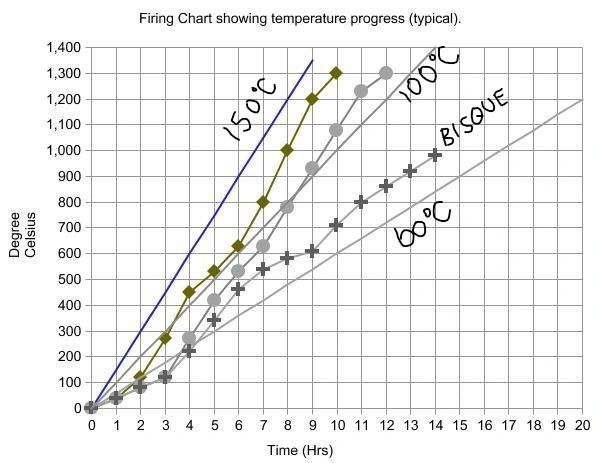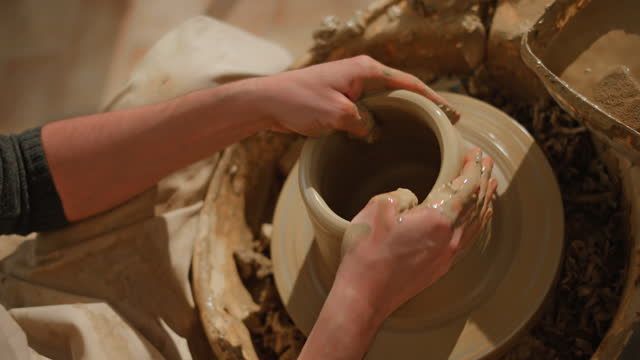Did I Request The Maker From My Clay?
Introduction
“Did I request thee, Maker, from my clay
To mould me Man, did I solicit thee
From darkness to promote me?”
These captivating words, penned by the English poet John Milton in his epic Paradise Lost, give powerful voice to humankind’s innate desire to understand our origins and purpose. Though written centuries ago, Milton’s provocative question resonates deeply today, prompting introspection about our relationship to our Creator and the mystery of existence.
The Meaning Behind the Quote
The quote “Did I request thee, Maker, from my clay to mould me man?” comes from John Milton’s epic poem Paradise Lost. On the surface, it expresses a sense of existential questioning about the nature of human existence and free will. The speaker is grappling with the idea that God, as the “Maker,” created humans, described metaphorically as being “moulded” out of “clay.” This vivid image conveys a sense that humans are the creations of a divine, omnipotent being.
However, the questioning tone suggests that the speaker is struggling to understand why God brought humans into existence without their consent. The quote touches on philosophical questions about fate, destiny, and human agency. If humans were created by God without being consulted, do they truly have free will? Or are they bound by God’s design? The quote expresses a profound desire to understand one’s purpose in the cosmos.
On a deeper level, the quote reflects the human condition itself – the search for meaning, the questioning of authority, and the tension between accepting one’s fate versus asserting one’s own authentic identity. The fragility yet conviction in the speaker’s voice reveals a courageous spirit grappling with existential questions that have universal resonance.
Historical Context
The quote “Did I request thee, Maker, from my clay To mould me man?” originates from English poet John Milton’s epic poem Paradise Lost, first published in 1667. Milton began composing the 12-book poem in the 1650s, several years after losing his eyesight. It retells biblical stories surrounding the Fall of Man, including Satan’s rebellion in heaven and the temptation of Adam and Eve in the Garden of Eden.
The quote appears in Book 7 as part of a soliloquy by Adam after he and Eve have eaten the forbidden fruit. He is lamenting their expulsion from paradise and questioning God for creating him with flaws and weaknesses. This section provides insight into Adam’s personal anguish and regrets over disobeying God’s commandment.
As a 17th century work, Paradise Lost reflects literary and cultural attitudes of that era, such as Puritan moral values. However, its examination of free will, morality, and humanity’s relationship with the divine remain influential and carry philosophical significance today.
Literary Significance
This quote by the 13th century Persian poet Rumi has had a profound influence in literature over the centuries. Though the full poem explores humanity’s relationship to a higher power, this particular line is often extracted and repurposed across genres and forms.
Many literary scholars believe Rumi was alluding to the metaphor of God as the “Divine Potter” who fashions human beings. This trope appears in various religious and mythological traditions, from Hinduism to Christianity. Rumi’s evocative phrasing casts the metaphor in a new light by giving humanity a voice to question their maker.
Rumi’s words seem to imply free will and personal agency in spite of divine authorship over one’s fate. This interpretation has resonated with literary minds and inspired an array of creative works over generations. The quote has been utilized as a title, epigraph, theme or direct reference in novels, poems, plays, songs and films up to the modern day.
For instance, it featured prominently in the American novel “Clay” by David Almond published in 2005. The author explored the quote’s meaning through his protagonist, a young boy who literally sculpts a miniature clay man and brings him to life. Rumi’s poem added a layer of mysticism and metaphor to the coming-of-age tale.
The enduring legacy of this quote in the arts speaks to its elegant expression of the universal struggle to understand one’s purpose and place in the world. Rumi captured an essential philosophical dilemma with skill and subtlety that continues to move audiences centuries later.
Spiritual Interpretations
This quote can be interpreted through various spiritual and religious lenses. From a Christian perspective, the “maker” refers to God as the divine Creator. The rhetorical question implies that humans, as God’s creations, do not have the right to question why He made them as they are. It advocates an acceptance of God’s will and plan, as well as humility in recognizing that the Creator’s choices are beyond human comprehension.
In Buddhism, the “maker” can indicate the doctrine of dependent origination. All things and beings are created due to causes and conditions, without an omnipotent Creator. The quote points to the futility of asking metaphysical questions about one’s existence. Instead, Buddhists focus on living ethically and escaping suffering through enlightenment. From this worldview, the rhetorical question underscores the importance of self-reflection to understand one’s conditioned existence.
For Hindus, the maker may represent Brahman, the supreme metaphysical reality. The quote evokes the concept that all beings are created from the same divine source. Questioning why Brahman made an individual the way they are is fruitless, since Brahman is inherently unknowable and beyond human reasoning. The quote promotes accepting one’s dharma or destined role in the cosmic order of Brahman’s creation.
Across these faiths, the quote takes on themes of divine acceptance, destiny, and the limits of human comprehension when contemplating metaphysical origins. It points seekers of spiritual truth toward self-reflection, humility, and fulfillment of one’s purpose within a greater cosmic plan.
Secular Perspectives
From a secular standpoint, the quote “Did I request thee, Maker, from my clay To mould me Man, did I solicit thee From darkness to promote me?” can be interpreted as a reflection on the lack of free will and control people have over their own existence. Without belief in a higher power like God, humans can view themselves as beings who never requested or chose the circumstances of their creation and life. This hints at the helplessness individuals may feel in forging their own path, bound by factors outside their control like genetics, family, social environments, and historical contexts. Secular thinkers analyze how these unchosen facets shape people’s lives and restrict their agency. The quote suggests that humans emerge into consciousness without input into the conditions that define them. It provokes reflections on taking responsibility for life situations not of one’s own making. From a secular standpoint, the quote implies individuals did not willfully opt into existence, yet still must make meaning of their lives.
Personal Meaning
As I reflect on this profound quote, “Did I request thee, Maker, from my clay To mould me Man, did I solicit thee From darkness to promote me?” it resonates deeply with my own life journey and personal growth. The realization that we did not choose the circumstances of our creation, yet we have the power to shape ourselves, is illuminating. This quote reminds me to take responsibility for my choices, development, and destiny – rather than remain passive or reactive. It’s empowering to remember that while I didn’t request my beginning, I can still request and manifest my future.
In moments when I’ve felt unsure of my path or purpose, this quote centers me. I’m prompted to look inward rather than outward for answers. My power lies not in questioning why I was created a certain way – but in choosing what I will make of myself. When I feel stuck, recognizing that I have a say in my own growth catalyzes action. While I cannot control every external factor, I always have a choice in how I respond and who I become.
This quote is an anthem of self-determination and human agency. It highlights that we are not simply subject to forces beyond our control. We can consciously create ourselves each day through our choices, values, and self-belief. Whenever I revisit this quote, I’m called to embrace my power to mold my life’s clay – while I yet have the chance.
Societal Applications
This quote from the Persian poet and philosopher Rumi can provide guidance on current social and political issues. The notion that we did not choose the circumstances of our birth speaks to matters of privilege, equity, and justice.
We do not select the country, race, class, gender, or family we are born into. Yet these factors shape the opportunities and obstacles we face. This quote is an important reminder that no one inherently merits greater status based merely on their birth. We should judge people by their character and actions, not their origins.
The quote also connects to debates on social mobility and equal access to education, healthcare, and political power. If fate arbitrarily grants some people advantages at birth while disadvantaging others, that increases the obligation to create a society with liberty and justice for all. Those born into privilege should use their position to lift up the disadvantaged.
Rumi’s message about the randomness of birth speaks as well to issues of discrimination, prejudice, and hatred due to nationality, ethnicity, or religion. If we reflect that we did not will the circumstances of our birth, it calls us to greater empathy, understanding, and unity with all people across manmade divides.
Call to Action
This profound quote from the 13th century Sufi poet Rumi encourages us to reflect deeply on our purpose in life. Do we view ourselves as creations shaped by forces beyond our control? Or do we see ourselves as active agents directing our own destinies?
Rumi’s words remind us that we have a choice. We can resign ourselves to fate, allowing external circumstances to mold us. Or we can embrace our free will, seizing opportunities to better ourselves and our communities.
Take Rumi’s question to heart. Reflect on the unique talents, passions, and experiences that make you who you are. How will you actively shape the direction of your life? What greater purpose will you devote yourself to?
This is a call to transcend passive existence. To recognize that you are the author of your own story. That you have a sacred power to turn inward, dig deep, and sculpt your own character. Therein lies the key to living a meaningful and fulfilled life.
Conclusion
In conclusion, the quote “Did I request thee, Maker, from my clay To mould me man? Did I solicit thee From darkness to promote me?” reflects on humanity’s lack of control over its own creation and destiny. Though the words were written by John Milton centuries ago, they still give us pause today as we contemplate our purpose and place in the universe. This poignant quote reminds us that we did not choose the circumstances of our birth or request our existence from a higher power. Yet we all have a desire to find meaning and make our lives matter. As we go about our daily lives, we would do well to occasionally reflect on this quote, and consider how we want to craft our role in this world. Though we may feel small in the grand scheme of things, we each have the power to bring more light, love and meaning into our little corner. Our lives are fleeting, but our actions can bring goodness that echoes beyond our lifespan.



